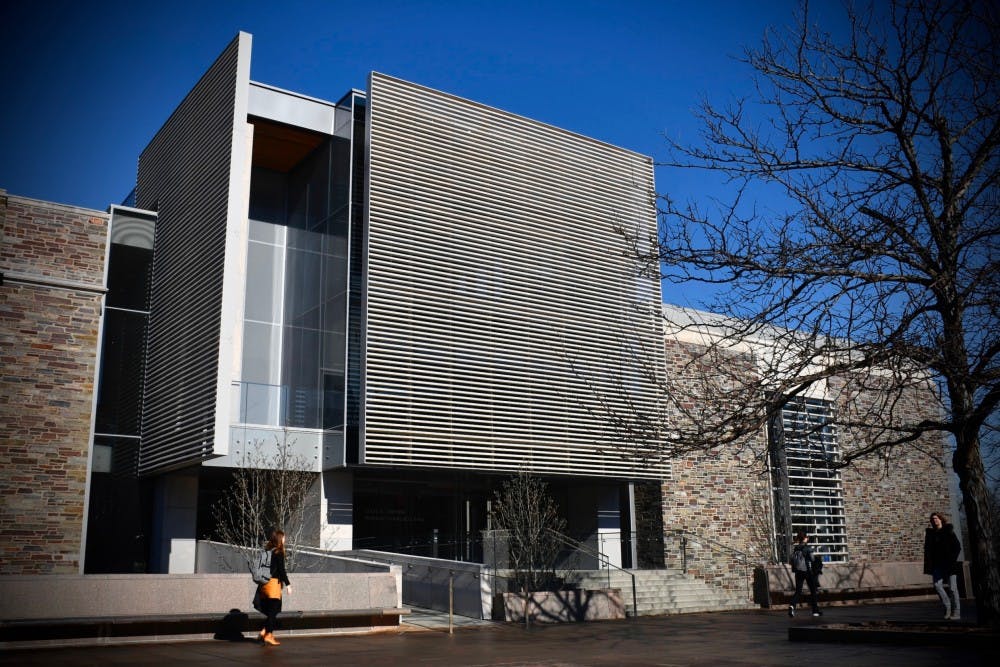“How horrible, fantastic, incredible it is that we should be trying on masks here because of a faraway country … [because of] people of whom we know nothing,” stated Neville Chamberlain more than 80 years ago. Londoners were donning masks, fearing what might cross the ocean waters from “faraway” Germany in the lead-up to World War II.
Although theirs were gas masks and ours are not, Chamberlain’s words still resonate. To many, it remains “incredible” that a “faraway country” can affect us so deeply. Yet what many fail to remember is that “faraway” has never been so close. The “faraway country” may change — Germany then, China now — but the reality that many of us know little about the country itself does not.
As Princeton students, we should take special care to address this dilemma for ourselves and the nation. Many Princetonians hope to be future decision makers not just in government, but in computer science, business, media — the list goes on. An increasingly globalized world means these fields rest on global foundations. So when a crisis like COVID-19 erupts, cultivating an understanding of these “faraway countries” becomes imperative, especially if we are to fight xenophobia and racism. Only then might we be able to respond to international crises effectively, both as individuals and as a nation.
Mark Twain once famously said, “God created war so that Americans would learn geography.” Twain highlights a tragic fixture of the American public’s engagement with foreign affairs: Without calamity — without war, trade shutdown, disease — distant geographies are often overlooked even when our connections to them run deep.
Such was the case in Twain’s era, and such is the case now. That COVID-19 might have been in Los Angeles as early as last December demonstrates the depth of our global connections, as well as the consequences of overlooking them. The pandemic reveals that we can no longer continue to make the same mistake, especially with China.
Today, the United States’ connection with China is the most important relationship the U.S. possesses. From economic interdependence to military friction, U.S.-China relations constitute not only a major part of the international order, but a major part of American daily life. The food we eat, the technology we use, and the oceans we patrol all intersect with China.
But what do we know of China, and what do we know of Wuhan? Over 100 years ago, Wuhan was known by traveling Westerners as the “Chicago of the East.” Today, it is known as Ground Zero. Yet by their names, these labels reveal the truth: Americans do not understand Wuhan, much less China as a whole. Wuhan is no more the “Chicago of the East” than Chicago is the “Wuhan of the West,” and Wuhan is absolutely more than just Ground Zero for the 11 million people who call it home.
At Princeton, courses on China are not required — nor should they be. Students have varied interests, and China need not be one. The result, however, is that without personal initiative, many students lack a more-than-casual understanding of China or foreign affairs altogether. Though required classes may indeed be too extreme or too restrictive, students should push themselves to seek experiences, classes, or readings that reinforce the understanding that the United States does not exist in a vacuum.

Without attempts to develop a global perspective, we are doomed to react to global calamities poorly. The effects of this U.S.-centric view are all around us. Labeling COVID-19 as the “China virus,” pulling out of the World Health Organization, being barred entry to dozens upon dozens of countries — all of these events are evidence of our inability to recognize that our increased connection to other countries must coincide with increased understanding and, eventually, cooperation.
This pandemic will not be the final world event to affect the United States. We may not be able to prevent future calamities, but we may be able to begin understanding faraway peoples and places. Perhaps then further tragedy might be avoided or alleviated.
David Palomino is a junior in the politics department from Los Angeles, Calif. He can be reached at davidap@princeton.edu.









